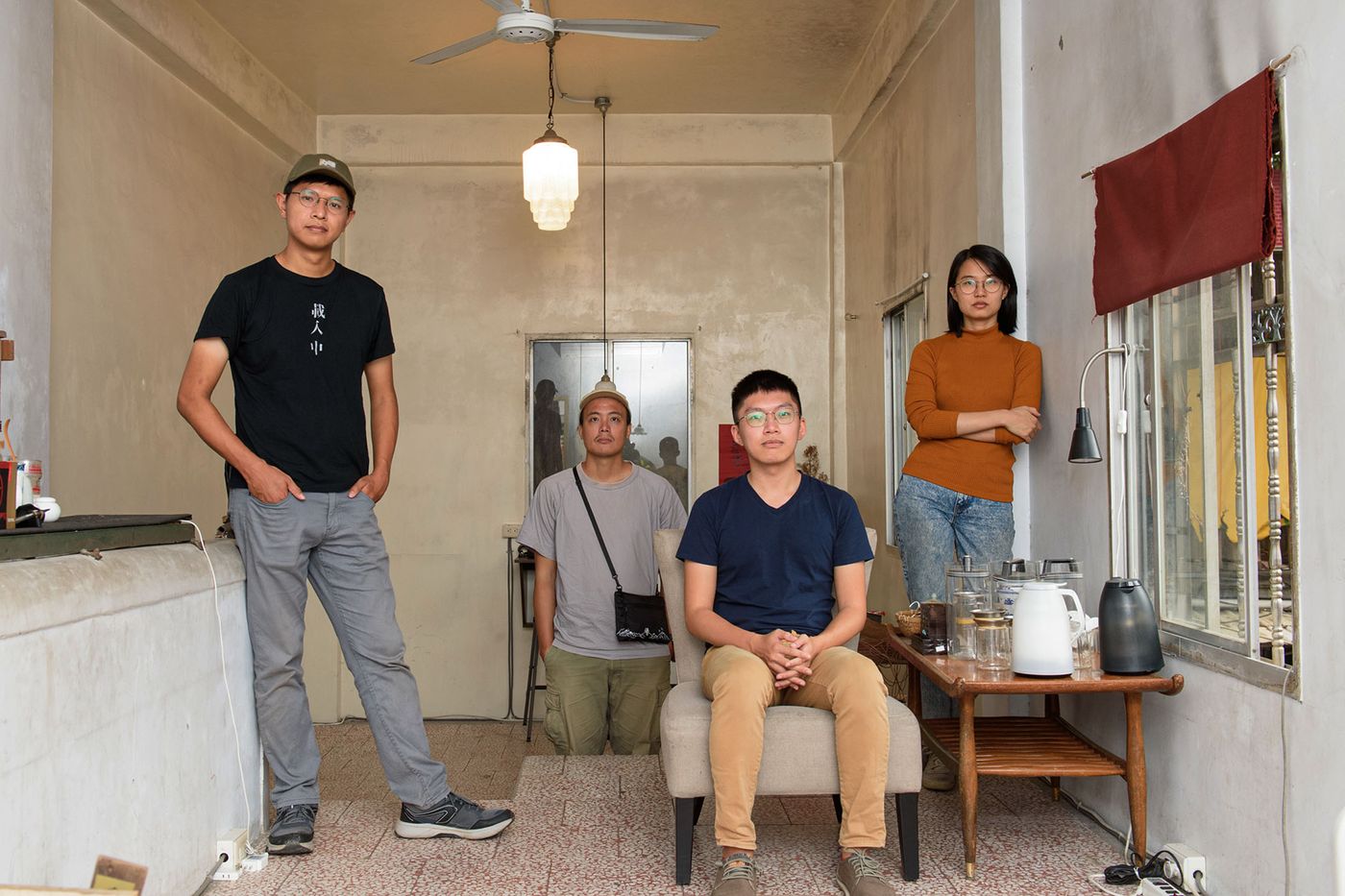
記者/譯者
Stranger on the border: "What if Taiwan doesn't want us and we don't want to be Chinese?"

It's rare to post an article I wrote on Duan Media, because this report on the young people of Kinmen and Mazu is the most difficult article I have ever written since I joined Duan Media - but fortunately I ended up writing it. , I like it myself. Welcome to click on the link , it is said that the first 30 readers can read it for free, and there is also a discount if you want to subscribe to "Duan Media"~
When I first arrived in Kinmen, I actually contacted many members of the "Unification Promotion Party" and "Zhi Gong Party", trying to break through the stratosphere and listen to Kinmen's super dark blue (or even reddish blue) voice.
Unsurprisingly, no one wanted to be interviewed at all, and I was stunned.
In the end, I decided that instead of being annoyed by the "inability to break through the stratosphere", I might as well just write the story of the "stratosphere" in Jin and Ma.
After all, their stories are indeed worth writing, because the anxiety of the "stratosphere" of the Golden Horses is indeed multiple:
The "Taiwanese identity" of the young people in the report has already taken root, but in the stereotype on the political spectrum, they are often excluded and abandoned by the mainstream young people in Taiwan; in their daily life, they have to face the network of relatives and Blue/conservative ideology, while the rise and siege of mainland China is a daily reality that is visible to the naked eye, happening every day in front of my eyes.
Therefore, this article is actually written for all the young people of Golden Horse. Thank you for greatly expanding my imagination of "Taiwan". I also hope that Taiwanese who have read this report can imagine "Golden Horse" more gently in the future. It's easy to say things like "Kinmen Mazu go back to the mainland".
In addition, although it was not written into the report in detail, in the process of interviewing and writing this article, the most interesting thing for me was actually the pinyin problem mentioned at the end of the report - Quemoy, Kinmen, and Jinmen.
Not many people today know that from the 17th century to the 1970s, the more widely known name of "Kinmen" in the Western world was actually called "Quemoy", and the source of this spelling is actually the pronunciation of "Kinmen" in Zhangzhou dialect ( Like ㄅㄨㄧ and ㄋㄨㄧ in Yilan accent "呷米和馬馬", the pronunciation of "door" is ㄇㄨㄧ).
This pinyin of old place names actually reflects one thing: when Kinmen and Xiamen were in contact with the outside world, China was not a complete and unified modern country like it is today, and there was no standard pinyin transcription system. Kinmen is even mediated by Zhangzhou dialect—so Zhangzhou dialect, which now seems to be a local branch of dialect, was actually the most international and historically longest spelling.
As for Kinmen, which Taiwanese are very familiar with, it is the " Postal Pinyin " that was used in the early years of the Republic of China. The "Old Guoyin" of that year, like Hokkien, retained the "Jianyin" (ㄐ) and Tuanyin (ㄍ) The difference between ─ for example, the word "Jing" is pronounced "ㄐㄧㄥ", and the word "金" is pronounced "ㄍㄧㄣ" (that is, Kin), unlike the initials of "ㄐ" now.
In other words, the spelling of "Kinmen" actually reflects the appearance of "modern China" just unified pronunciation in the early years of the Republic of China, which itself is a legacy of the "Republic of China system" - and the existence of the Republic of China in Taiwan is actually a The biggest remnant of the "Republic of China system".
However, as mentioned in the last paragraph of this report, in recent years, some scholars have also begun to advocate the use of Chinese "Hanyu Pinyin" to spell Kinmen and change Kinmen to Jinmen, because "Hanyu Pinyin" is now the mainstream of the world.
Will Kinmen become Jinmen one day? I have no idea.
I only hope that the young people I know in Kinmen and Matsu can live in the way they love the most and never need to be troubled by their identity and position.
Like my work?
Don't forget to support or like, so I know you are with me..
Comment…